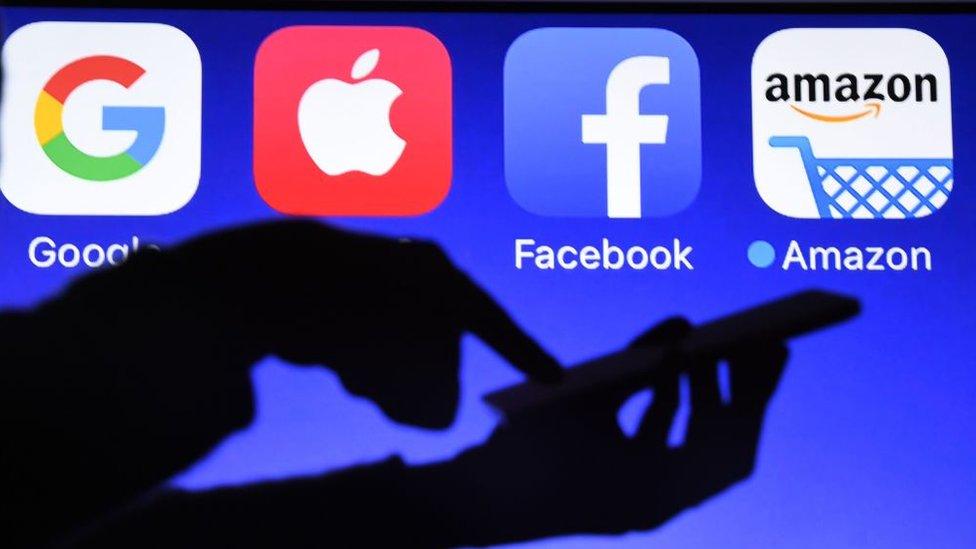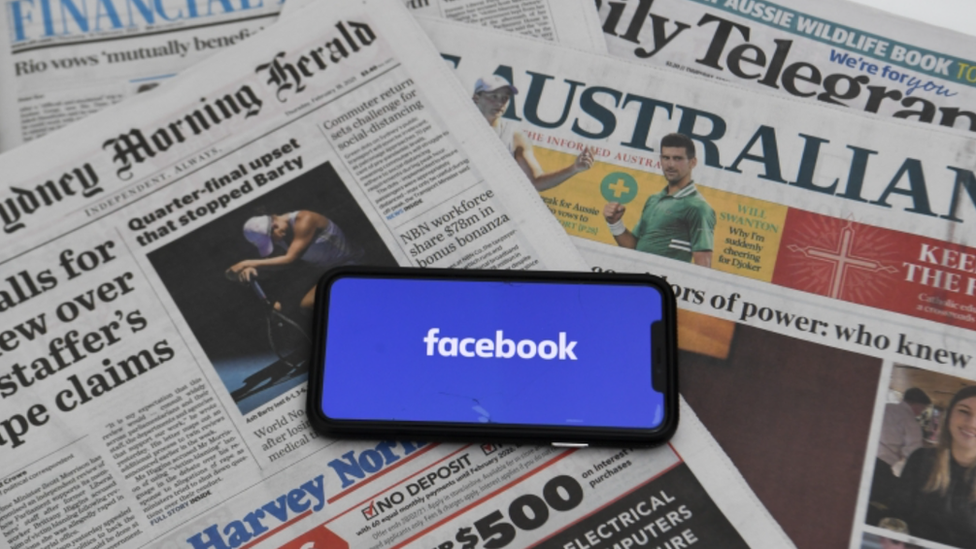Facebook and Google 'too powerful' says watchdog boss
- Published

Tech giants Google and Facebook have too great a share of the UK online advertising market, the boss of the UK's competition watchdog has said.
The Competition and Markets Authority (CMA) would like regulatory changes to deal with that market dominance, its boss Andrea Coscelli told the BBC.
Google and Facebook have faced criticism from competition and other regulators in the past.
Facebook said it faces "significant competition" online from rival firms.
Google has also been approached for comment by the BBC.
When questioned by the BBC's media editor Amol Rajan, Mr Coscelli said that the two tech giants have a "duopoly" in the UK when it comes to digital advertising, which can often be bad for competition.
Google and Facebook have about an 80% share of the UK's £14bn digital advertising market, which is "not an ideal situation", Mr Coscelli said.
"We think it would be good if we got to a situation where others had a bigger share of the market," he said.
He also described the fact that Google holds about 90% of the UK's £7.3bn search advertising market as a "problem".
Facebook currently has a more than 50% share of the £5.5bn display advertising market in the UK, which is too much, Mr Coscelli said.
The Competition and Markets Authority would like regulatory changes to deal with the 'imbalance of power'
"When companies have too much economic power, that creates a number of distortions, first for competitors, secondly for consumers, and at some level potentially in terms of the political process as well, in some cases," he said.
"We, in general terms, like to see markets more competitive, with more players, with more diversity of players, because we think that delivers better outcomes."
A Facebook spokesman said its platform "gives millions of people and businesses in the UK the opportunity to connect and share."
He added: "Advertisers can and do freely move their [advertising] spending between TV, radio, print, outdoor and online.
"And in online advertising itself, we face significant competition from the likes of Google, Apple, Snap, Twitter and Amazon, as well as new entrants like TikTok, which keeps us on our toes."
Increasing scrutiny
Mr Coscelli stopped short of saying that Facebook and Google should be broken up.
"Our current proposal is not to break them up, it's to have pro-competitive regulation to deal with some of the issues, but it would allow the companies to maintain all the current activities that they have," he said.
The CMA said in December it plans to issue Facebook, Google and the other tech giants a set of rules customised to each firm to rein in "anti-competitive behaviour" and give consumers "more control over how their data used".
It is set to create a Digital Markets Unit within itself to draw up the rules and govern compliance, although legislation is required which may not be introduced until 2022.
Silicon Valley firms have recently faced increasing scrutiny from other regulatory bodies around the world.
Before the UK's exit from the European Union, competition regulation for global or pan-European companies was done through Brussels.
Google has been hit with a number of competition fines by the European Commission over the years, including a €1.49bn (£1.28bn) fine in 2019 for blocking rival online search advertisers.
Facebook is also facing competition action in the United States from federal regulators and more than 45 state prosecutors who are accusing the social media company of taking illegal action to buy up rivals and stifle competition.
- Published23 February 2021
- Published23 February 2021
